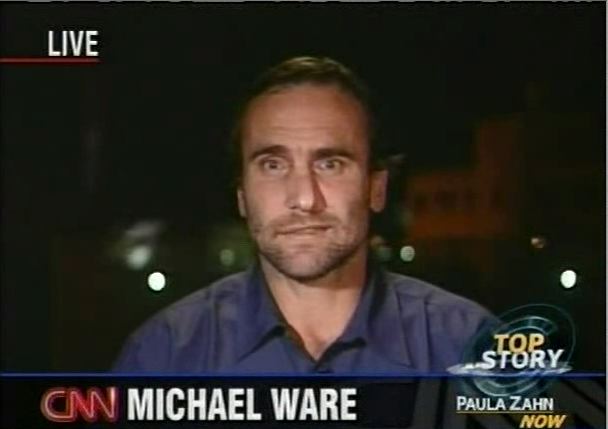PZN: The terror report

Click photo to play
Length: 5:05
PAULA ZAHN: So, is the U.S. accomplishing what it set out to do in Iraq or just the opposite? We put together a "Top Story" panel to get a reality check tonight.
Joining me from Boston is Jim Walsh, a terrorism expert with MIT, and, live from Baghdad, our own Michael Ware.
Glad to have both of you together tonight.
So, Jim, as the contents of this report were leaked, what surprised you most about its conclusion?
JIM WALSH, INTERNATIONAL SECURITY ANALYST, MASSACHUSETTS INSTITUTE OF TECHNOLOGY: Well, Paula, I don't think it's new.
A lot of analysts, myself included, were warning that even before the war in Iraq, if we went into Iraq, this would help al Qaeda; this would help the terrorists. It would help with recruitment, and more people would want to join the cause.
And Kelli is right. Intelligence officials have been offering these views for some time in testimony and speeches. What is news here, though, is that this is a National Intelligence Estimate. It's the most important intelligence document that the government produces. All 16 different agencies are agreeing, and they're saying that we are less safe today than we were three years ago, and against the number-one threat we face, which is terrorism. And, so, it goes straight to the heart of the president's claims on what is his most important issue. So, it's certainly newsworthy in that regard.
ZAHN: And, Michael Ware, there's another point borne out by this report. We have seen the fallout from U.S. military action in Haditha and Abu Ghraib, and we know that has been used as a recruiting tool for al Qaeda and other terrorist organizations.
But this report also suggests that the mere presence of U.S. troops on the ground is creating this violence. So, at the end of the day, are we to accept the conclusion this is an absolute lose-lose situation for the United States?
MICHAEL WARE, CNN CORRESPONDENT: Well, the United States certainly has created quite a situation for itself.
I mean, we have seen -- it's been self-evident on the ground here since at least 2004 that the very thing President Bush says that he came here to prevent -- terrorism, and to curb this terrorism -- he is in fact fostering. I mean, after Afghanistan, al Qaeda and like-minded groups were looking for the new platform in which to blood the next generation, the next fire in which to forge the steel that they thought would take al Qaeda forward.
Abu Musab al-Zarqawi, the now-dead leader, saw this opportunity, and took Iraq as a platform. And that's exactly what we have seen happen. We saw a homegrown fight internationalized by people like Abu Musab al-Zarqawi. And we now see it as the rallying point for al Qaeda and global militants across the world.
This simply is not new. It's what intelligence agencies have been saying for quite some time. It dismisses President Bush's honey pot theory: We will draw them into Iraq and kill them there. No, say analysts I speak to. It's the beehive. We're shaking it up -- Paula.
ZAHN: Michael, thank you.
And let me have Jim weigh in on that, because the administration continues to argue that you're just looking at a snapshot here, and, to be perfectly fair, that you have to look at the totality of this report. Do they have a point there?
WALSH: Sure, I think that that's true.
But, then, we should simply declassify it, Paula. I have looked at plenty of NIEs over the years. They don't tend to be thematic. They don't tend to talk about sources and methods. And, so, they're usually the sort of documents that, if the president wants to, he can go ahead and declassify them, maybe remove a little bit here and a little bit there.
But it's important to realize that, on this argument, is the reporting being fair, that the person who started the study group, who headed the writing team for it, and who has since retired, confirms these reports as being true, and as I indicated before, Paula, that the CIA, the Defense Intelligence Agency, in testimony before Congress, has said the same thing, that the war in Iraq has been a rallying cry for al Qaeda and extremists and has...
ZAHN: All right.
WALSH: ... and has helped them. So, it's...
ZAHN: OK, Michael, just a quick final thought on how troops over there are reacting to the conclusion that their presence has caused this terrorism to spike?
WARE: Well, I haven't spent any time with troops today, Paula.
But what I can tell you is that, over the last few years, I have watched this tide of disenchantment grow within the soldiers and Marines, particularly as they're coming back for their second and their third tours. And they're not seeing any real difference.
These people, however, are professionals, by and large. They signed up to serve. They have been ordered to come here, and they're going to do the best job that they can. Nonetheless, that doesn't mean that they cannot help but see that they're still grinding it out in the same streets against the same enemy, who appears, at least in P.R. terms, to becoming stronger, not weaker -- Paula.
ZAHN: Michael Ware, Jim Walsh, thank you both. Appreciated hearing from both of you.
